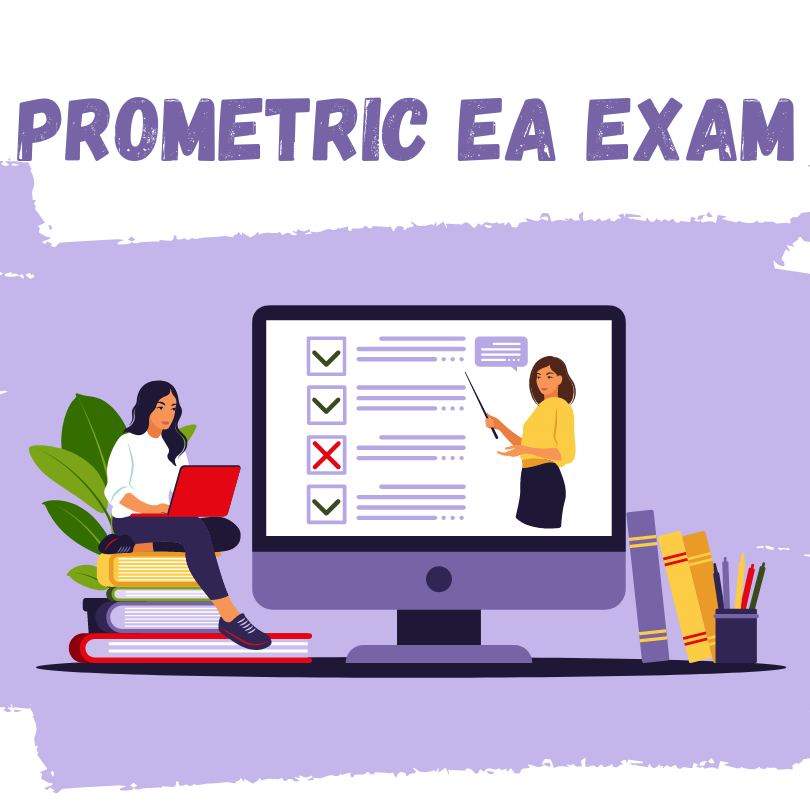Become an Enrolled Agent: Step-by-Step Guide
Passing the Enrolled Agent (EA) exam opens the door to...

Many people often ask “how to become an Enrolled Agent IRS representative?” as they navigate their career paths in the tax preparation industry. An Enrolled Agent (EA) is a tax specialist authorized to represent taxpayers before the IRS. Learning how to become an Enrolled Agent, for IRS matters, can be a lucrative career choice. EAs can work with individuals and companies in preparing tax returns and providing tax advice. Getting an EA certification can open up various career opportunities in the field of taxation.
For example, an Enrolled Agent may assist a small business owner in preparing their annual tax return, ensuring compliance with tax laws and regulations. They may also provide guidance on tax planning strategies to minimize the business owner’s tax liability.
Enrolled Agents are highly knowledgeable in tax matters and are entrusted with the responsibility of representing taxpayers before the Internal Revenue Service (IRS). They undergo rigorous training and examination to obtain the Enrolled Agent certification, making them well-qualified professionals in the field of taxation.

Before deciding on this career path, it is beneficial to fully understand how to become an Enrolled Agent IRS recognized, to adhere to all necessary qualifications. Reviewing the requirements for EA certification is the first step to becoming an Enrolled Agent. This includes obtaining a Preparer Tax Identification Number (PTIN) and completing the Internal Revenue Service Special Enrollment Exam (SEE).
To obtain a PTIN, individuals need to provide personal and business information, previous year’s tax returns, and payment for the issuance fee. The PTIN is a unique identifier for tax professionals and is required to prepare federal tax returns.
The SEE exam is a comprehensive exam that covers individuals, businesses, and representation, practices, and procedures. It is divided into three parts, each focusing on different aspects of taxation. Studying and mastering the fundamentals and basic tax formulas are essential for exam success.
Enrolling in an enrolled agent review course can provide structured study materials and practice questions to help prepare for the SEE exam. Additionally, practicing sample questions and taking mock exams can help familiarize with the exam format.
The Internal Revenue Service Special Enrollment Exam (SEE) is a comprehensive exam that tests knowledge in various areas of taxation. It consists of three parts: individuals, businesses, and representation, practices, and procedures.
The individuals section of the exam focuses on individual tax returns, including income, deductions, credits, and exemptions. It covers topics such as filing status, dependents, and various types of income.
The businesses section of the exam tests knowledge in areas such as partnerships, corporations, estates, and trusts. It covers topics like business deductions, capital gains and losses, and depreciation.
The representation, practices, and procedures section of the exam assesses knowledge on tax law and ethics, including the rights and responsibilities of enrolled agents and the procedures for representing clients before the IRS.
If you are unsure about how to become an Enrolled Agent IRS certified, it is recommended to start with a comprehensive Enrolled Agent exam study guide. EA Exam Test Bank provides such a guide as well as all the other tools necessary to pass quickly.
Passing all three parts of the SEE exam is required to become an Enrolled Agent. The exam is administered by Prometric and can be taken at various testing centers across the United States.
With a proper understanding of how to become an Enrolled Agent IRS official, one can significantly enhance their career prospects in the taxation field. Completing the application for enrollment to practice before the IRS is a crucial step after passing the SEE exam. A suitability check is conducted to ensure the applicant meets the ethical and professional standards required to represent taxpayers before the IRS.
The application process can take three to eight months to complete. During this time, the suitability check is performed, which includes a review of the applicant’s background and conduct to ensure they are fit to represent taxpayers.
Once the application is approved, the applicant becomes an Enrolled Agent and receives a certificate from the IRS. They are then authorized to represent taxpayers in tax matters, including audits, appeals, and collections.
Enrolled Agents are required to renew their enrollment every three years. This involves completing continuing education requirements to stay updated on changes in tax laws and regulations.
Tax practitioners across the nation are constantly seeking information on how to become an Enrolled Agent IRS endorsed to amplify their professional credentials. Understanding how to become an Enrolled Agent IRS approved is the first step towards achieving a reputable status in the tax advisory profession. Earning an EA certification comes with several benefits. Firstly, enrolled agents have higher earning potential compared to non-certified tax professionals. They also have unlimited practice rights, allowing them to represent clients in any tax matter before the IRS.
Becoming an enrolled agent deepens tax preparation skills and expands knowledge in various areas of taxation. It also provides job security, as tax professionals are always in demand. Furthermore, adding an EA certification to your resume demonstrates expertise in tax matters, adding credibility to your credentials.
Some key benefits of becoming an Enrolled Agent include:
Enrolled Agents can work in various settings, including accounting firms, tax preparation companies, or as independent tax consultants. They can also start their own tax practice and provide services directly to clients.
Enrolled agents have the potential to earn a competitive salary in the field of taxation. The salary range for enrolled agents can vary based on factors such as experience, location, and the size of the firm.
According to the National Association of Enrolled Agents (NAEA), the average salary for enrolled agents is around $73,600 per year. However, this can vary significantly depending on factors such as geographic location and level of experience.
With experience and additional certifications, such as becoming a tax specialist in a specific area, enrolled agents can increase their earning potential. Career growth opportunities exist in roles such as tax consultant, tax manager, or starting your own tax practice.
It’s important to note that salary potential can also be influenced by the demand for tax services in a particular area. Areas with a higher demand for tax professionals may offer higher salaries.
Enrolled agents and Certified Public Accountants (CPAs) have different roles and responsibilities in the field of taxation. The educational and certification requirements for both professions differ.
Enrolled Agents obtain their certification by passing the SEE exam, while CPAs must complete specific education requirements and pass the Uniform CPA Examination. CPAs typically have a broader scope of knowledge, including accounting and auditing, in addition to tax matters.
Enrolled Agents specialize in tax matters and can represent clients before the IRS. They have unlimited practice rights and can represent clients in any tax matter, including audits, appeals, and collections. CPAs, on the other hand, have a wider range of services they can provide, including accounting, auditing, and financial planning.
While both Enrolled Agents and CPAs are highly qualified tax professionals, the main difference lies in their areas of expertise and the scope of services they can offer to clients.
Becoming an Enrolled Agent is a rewarding career path for individuals interested in tax matters and representing taxpayers before the IRS. EA certification offers various benefits, including higher earning potential, unlimited practice rights, and job security.
By reviewing the requirements, preparing for the SEE exam, and completing the application process, aspiring enrolled agents can set themselves on the path to a successful career in taxation. With their in-depth knowledge of tax laws and regulations, Enrolled Agents play a crucial role in assisting individuals and businesses in navigating the complexities of the tax system.

Passing the Enrolled Agent (EA) exam opens the door to...

The journey to becoming an Enrolled Agent is both challenging...

Imagine gazing at a promising future as a tax professional.However,...

Achieving the status of an Enrolled Agent is a significant...

Are you envisioning a successful career as an Enrolled Agent?It's...